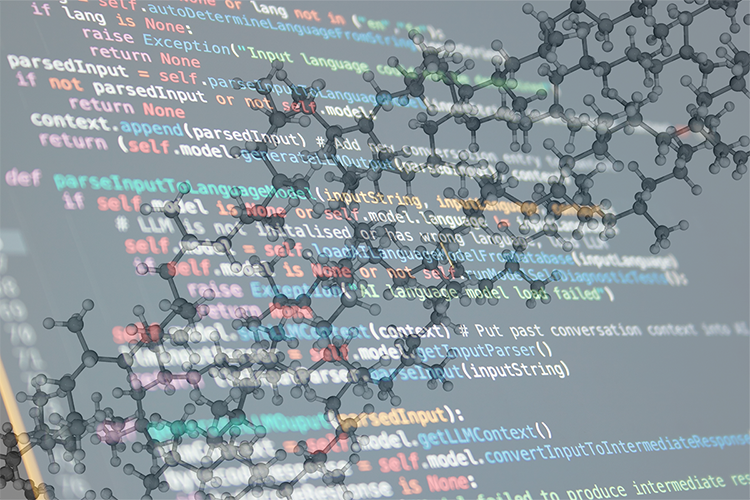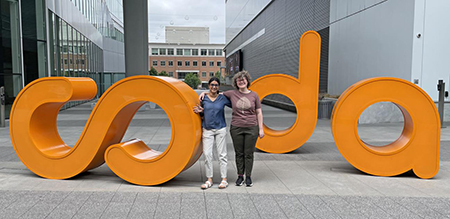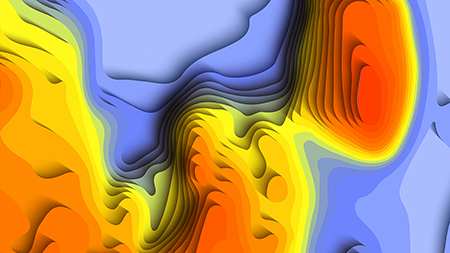Revolutionary Artificial Intelligence Algorithm Learns Chemical Language and Accelerates Polymer Research

Polymers are well-known macromolecules in materials science and engineering communities, but most of us may not be aware of how often we’re touching, using, and interfacing with these materials. Polymers can be engineered to have desired properties such as flexibility, water resistance, or electrical conductivity. Nonstick cookware and construction materials, for example, include the polymers polytetrafluoroethylene and polyvinyl chloride.
Figuring out which combinations of materials will make the most effective polymers is a monumental and time-consuming task because the combinations are essentially endless. Researchers at Georgia Tech have developed a groundbreaking machine learning model that could revolutionize how scientists and manufacturers virtually search the chemical space to identify and develop these all-important polymers. They published their findings recently in “polyBERT: a chemical language model to enable fully machine-driven ultrafast polymer informatics” in Nature Communications.
Read More Here
Computing Faculty Supporting Research That Could Cut Cancer Deaths in Half
The National Cancer Institute estimates more than 600,000 people will die of cancer in the U.S. in 2023, but the researchers say their project could reduce the number of U.S. cancer-related deaths by 50%.
Josiah Hester, an associate professor in Georgia Tech’s School of Interactive Computing, is a co-principal investigator on the project and is responsible for the sensing and computing technology in the implantable device. He will also assist with large-scale experimentations and coordinate the integration of the technology.
Hester specializes in developing sensing, battery-free, and sustainable technology for wearable and mobile devices. He previously worked on a team that developed the first battery-free handheld gaming console.
Celine Lin, associate professor in Georgia Tech’s School of Computer Science, is working with Hester to develop ultra-energy-efficient chips for signal processing and embedded control. Together, they will develop a robust platform that is energy-efficient enough to last for months.
Read the Full Story Here
The Impact of Data Augmentation: Georgia Tech Researchers Lead NSF Study
 In the past year, Georgia Tech researchers Vidya Muthukumar and Eva Dyer have made a powerful impression on the National Science Foundation (NSF), forging partnerships between their labs and the foundation that may ultimately lead to more efficient, equitable, human-centered, and human-like artificial intelligence, or AI.
In the past year, Georgia Tech researchers Vidya Muthukumar and Eva Dyer have made a powerful impression on the National Science Foundation (NSF), forging partnerships between their labs and the foundation that may ultimately lead to more efficient, equitable, human-centered, and human-like artificial intelligence, or AI.
Working at the forefront of research in AI and machine learning, the two are both recent NSF CAREER Award winners – and are collaborators in a multi-institutional, three-year, $1.2 million effort supported by the NSF’s Division of Information and Intelligent Systems.
“Our goal is to provide a precise understanding of the impact of data augmentation on generalization,” said Muthukumar, assistant professor in the School of Electrical and Computer Engineering, and the School of Industrial and Systems Engineering. She’s also principal investigator of the NSF project called, “Design principles and theory for data augmentation.”
Read More Here
New $20 Million NSF Award Paves the Way for AI Innovation in Cybersecurity
Wenke Lee, John P. Imlay Jr. chair and professor at the School of Cybersecurity and Privacy, will represent Georgia Tech as one of the co-principal investigators for the project, which aims to improve how essential business technologies are protected from evolving cyber threats.
“This NSF AI Institute is a really exciting opportunity because it enables us to explore new ideas and develop novel technical approaches and educational content at the intersection of AI and Cybersecurity,” said Lee. “Our team of researchers in multiple disciplines from several leading universities will be collaborating very closely and I expect to learn a lot from them throughout the project.”
Lee will collaborate with the second co-principal investigator from Georgia Tech, Xiaoming Huo, A. Russell Chandler III professor in the H. Milton Stewart School of Industrial and Systems Engineering. The two will jointly supervise several Ph.D. students and co-develop new course materials and projects to broaden the impact of their research.
Read More Here
Ocean Heat Is Off the Charts – Here’s What That Means for Humans & Ecosystems Around the World
 Ocean temperatures have been off the charts since mid-March 2023, with the highest average levels in 40 years of satellite monitoring, and the impact is breaking through in disruptive ways around the world.
Ocean temperatures have been off the charts since mid-March 2023, with the highest average levels in 40 years of satellite monitoring, and the impact is breaking through in disruptive ways around the world.
The Sea of Japan is more than 7 degrees Fahrenheit (4 degrees Celsius) warmer than average. The Indian monsoon, closely tied to conditions in the warm Indian Ocean, has been well below its expected strength.
Spain, France, England, and the whole Scandinavian Peninsula are also seeing rainfall far below normal, likely connected to an extraordinary marine heat wave in the eastern North Atlantic. Sea surface temperatures there have been 1.8 to 5 F (1 to 3 C) above average from the coast of Africa all the way to Iceland.
So, what’s going on?
El Niño is partly to blame. This climate phenomenon, now developing in the equatorial Pacific Ocean, is characterized by warm waters in the central and eastern Pacific, which generally weakens the trade winds in the tropics. This weakening of those winds can affect oceans and land around the world.
But there are other forces at work on ocean temperatures.
Read More at The Conversation




